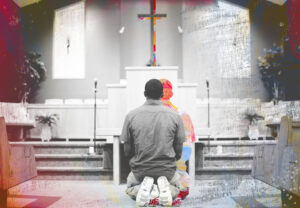“How do I keep going?”
That is a question that ministers have been asking themselves for a long time now. When thinking about the concept of ministry longevity two scenarios come to mind: staying in ministry for a long period but holding several different positions in that time, and holding the same ministry position for a long period even when seemingly better positions come around. This article is not about arguing a right or wrong between these two positions. I am in the midst of my third decade of ministry, and that journey has included two established churches, two church plants, and a college campus ministry. God moves us to where we are needed. The focus of this article is staying the course of ministry in general, although the principles presented will be relevant to both situations.
This topic is also near and dear to my heart because after spending about two and a half years in my first church plant, without taking a day off, I experienced serious ministry burnout. So much so, that I left the ministry for about six months, took a secular job, and had to kind of find my way back in. Along the way, I worked on my personal, spiritual life because I knew something was wrong. Let me say right up front that it was not any great sin that took me down, I was always doing “good” things. However, I was not doing what was best, for me or my church. These are some principles I discovered that helped me stay the course in my current church, which I planted almost sixteen years ago.
1. Days off are not optional.
When I looked back on my first experience what I found was I thought if I didn’t do something for the church every day then we would miss out on something. I realized the root of this attitude was my lack of trust that God could run His church just fine on my days off. I now take those days off. As a matter of fact, I guard them with barbed wire.
2. Prayer times are not optional.
Jesus makes a very simple and direct statement in the Gospel of John: “1 I am the vine; you are the branches. The one who remains in me and I in him produces much fruit, because you can do nothing without me.” (John 15:5, CSB). We need to ask ourselves: “Do I believe Jesus or not?” If we believe Him, then connection with Him is not optional. Every prayer time thrown aside is a spiritual disconnect, a branch breaking free of the source of life, the vine. It is not worth it.
3. The Bible is truly life-giving, so not optional.
Jesus said that we do not live just by bread or food but on every word that comes from the mouth of God (Matt 4:4). Skipping times of Bible reading is me starving myself over convenience. It’s stupid to do so yet many of us will and have a justification ready when God confronts us with it. I remember hearing once that just about every pastor who lost their ministry through sexual or financial sin had dropped their prayer and Bible times before the sin happened. Again, not optional.
4. Worship is not just for the congregation.
It can be easy for us pastors to listen to the music before our sermon with one ear and think through our sermon points with the other. Or maybe we are seeing everything in the sanctuary that is wrong, the church program left on the floor or the stain in the carpet the cleaning crew missed, or…you get my point. I have learned that I need to engage in worship just as much as my church folks do. I want to understand the words, the notes, and the message of the songs. At Souls Church we mix contemporary praise with classic hymns. I cannot tell you how many times God has touched me through the music. Don’t miss those crucial times.
5. I am responsible for my own spiritual growth.
No one does it for me. I had to take some time to get to know myself. I had to understand what feeds me, what helps me to be spiritually full. I know that in addition to prayer and Bible study, I need to exercise regularly. I know I need to be outside on some trail or in my brother’s boat on a lake with a fishing line in the water. Some days I need to be on the back of my motorcycle with no plan, just seeing where the road takes me. These things help me be spiritually and emotionally full.
6. I need to better understand “Spiritual Theology.”
Eugene Peterson once wrote that in combining the terms “spiritual” and “theology”; “Spiritual” keeps “theology” from degenerating into merely thinking and talking and writing about God at a distance. “Theology” keeps “spiritual” from becoming merely thinking and talking and writing about the feelings and thoughts one has about God. A few years ago, during Covid, I took the opportunity to return to Gateway Seminary and I earned my Master of Theology (ThM) with a focus on Historical and Spiritual theology. I had intended to focus on church history but spirituality in church history became my subject, and I am so glad it did. I tend to approach the Bible very academically and I bet that many of you do too. Realizing that Scripture lends itself to a lived experience with the Holy Spirit changes my approach for the better.
7. I need to better understand the truth that we are in a three-front spiritual war!
We are fighting the world, the flesh, and of course Satan and his minions. Why would we try and do this without being spiritually full and Scripturally equipped? I know that some of you may be thinking one of two things: “Chris is getting too charismatic for my tastes” or “Why does Chris need to use war imagery?” My answer to these two objections is that a) we Baptists need to realize that the Holy Spirit does not belong exclusively to our Charismatic brethren and we need to start talking about Him more and b) the Bible uses war imagery, wake up and start living as if you are at war!
The main point is this: If we stop engaging God we will never make the long haul. We have a lot working against us. But through an abiding relationship with Jesus Christ and cultivating our relationship with the Holy Spirit we can do it. Pastors need to be a lot of things but we can only help our people be sustained if we are spiritually sustained. Engage it, Brethren, don’t ignore it!
Chris Nason is the pastor of Souls Church of Manitou Springs, Colorado
¹Eugene Peterson. Christ Plays in Ten Thousand Places, a Conversation in Spiritual Theology. (Grand Rapids, MI: Eerdmanns, 2005), Pg. 5.







